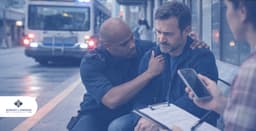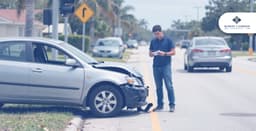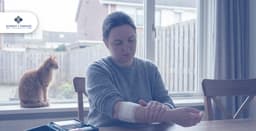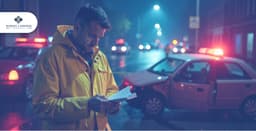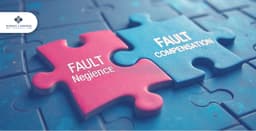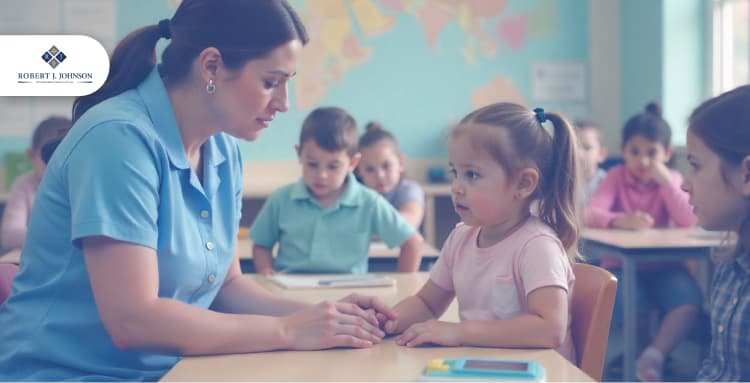
September 15, 2025
What Happens if a Child Is Injured at School in Florida
When you send your child to school, you expect learning, friendships, and routine, not an unexpected call that something has gone wrong. Yet in Florida, school injuries are more common than many parents realize, whether it is a fall on the playground, an accident in gym class, or something far more severe.
While teachers and administrators are expected to create a safe environment, accidents and negligence can change a family’s life in seconds. The real question is, when your child gets hurt at school, what are your rights, and what happens next?
1) Common School Injury Scenarios in Florida
Florida schools see a wide range of incidents, from everyday slips to severe trauma. According to CDC data, nearly 20 percent of all child injuries occur in or around schools, so it's evident how crucial it is for legal guardians to understand the risks and their rights.
Playground accidents: Playground injuries are frequent among younger students. Falls from climbing structures, swings, or slides often result in cuts, sprains, fractures, or head trauma.
Bus‑related injuries: Accidents or mishaps while boarding, exiting, or riding the school bus can cause serious harm. Trips behind the bus, falls inside during sharp stops, or collisions in school zones can lead to strains, broken bones, or worse. Vigilance and safe procedures at the bus stop are vital in preventing these injuries.
Sports and PE mishaps: School sports account for hundreds of thousands of injuries annually. In Florida this includes sprains, torn ligaments, fractures, and concussions. High‑impact sports like football, soccer, basketball, and cheerleading come with particular hazards.
Bullying and physical altercations: From roughhousing to intentional assaults, physical conflict among students can prompt head injuries, fractures, or internal trauma.
Hazardous premises (broken steps, slippery floors): Hallways, cafeterias, and stairwells account for many slip‑and‑fall incidents. A freshly mopped floor, an unmarked wet surface, uneven steps, or unfinished corridors can cause serious injuries.
2) Who Is Liable? Understanding Legal Responsibility

If a child is injured at school in Florida, legal responsibility can fall on different parties depending on how the accident happened.Knowing who holds liability can help families determine their next steps and pursue rightful compensation.
First of all, the role of the school district. Florida public school districts owe a legal duty of care to students. That includes maintaining safe premises, supervising students, and responding to hazards promptly. If a district employee, such as a maintenance worker or custodian, fails to address a hazard, the district may be liable under a premises liability or negligence theory.
When teachers, staff, or administrators may be at fault. When school personnel breach their duty by failing to supervise playground activity, improperly coaching sports, or ignoring bullying threats, liability may extend to the individual and the school.
Third-party liability (vendors, transport contractors). Not all school injuries stem from district staff. Third parties such as bus companies, contracted sports coaches, playground equipment vendors, or food suppliers may also be responsible. If a defective piece of equipment or negligence by a vendor contributed to the injury, parents may pursue a claim directly against the third party.
The challenge of sovereign immunity in Florida. Public schools in Florida benefit from sovereign immunity under the Florida Tort Claims Act, which limits liability and caps damages typically at $100,000 per person and $200,000 per incident for tort claims, or $200,000 per person and $300,000 per incident when aggregated statewide.
However, the state has waived immunity for negligently caused injuries during operational functions, like supervision or maintenance. Discretionary decisions by school boards remain protected.
3) Florida’s Sovereign Immunity Rule Explained
Florida law protects public schools from most large lawsuits through sovereign immunity. While injury claims are allowed, they're subject to strict limits and procedural rules according to Florida Statute § 768.28.
As of 2025, payouts are capped at $200,000 per person and $300,000 per incident, regardless of the jury’s verdict. These limits apply to all public schools unless legislation raises the cap, which has been proposed but not yet passed.
Claims may still proceed if the injury resulted from operational negligence like poor supervision or unsafe premises. Public schools can also voluntarily settle for more if they carry higher insurance. Third-party contractors may be liable too, though they often share the same immunity caps if acting under school authority.
4) Steps to Take Immediately After a School Injury
When a child is injured at school, emotions run high and the legal path can feel overwhelming. Even in the toughest situation, these are the steps you need to take:
Document Everything:As soon as possible, take clear photos of the injury and its location (playground, hallway, bus area). Collect witness names and accounts from students, staff, or bystanders. Retain all medical records, diagnoses, and bills. As per the Florida Department of Health, these will form the foundation of any legal claim.
Notify School Officials in Writing: Submit a written report to the school administration or principal documenting the incident, circumstances, and injuries. Request an official copy of the school’s incident report for your records. Public schools require formal written notice to preserve legal rights.
Request Surveillance Footage or Records: Many Florida schools and buses use security cameras; however, footage is often deleted after a short period. Send a written request to the school. So that they can preserve any video or safety logs related to the incident before they are lost.
Seek Medical Treatment and Keep Records: Immediately arrange for your child to receive appropriate care. Even minor injuries should be evaluated professionally. Keep all diagnostic reports, treatment receipts, and billing statements.
Track Your Child’s Recovery and Emotional Impact: Maintain a journal or log of how the injury affects your child’s daily life, such as missed school days, limited physical activity, or signs of anxiety. This helps support claims for pain, suffering, and long-term consequences.
Contact a Florida Personal Injury Attorney:Prompt consultation with an attorney experienced in Florida school injury law helps you understand deadlines like notice-of-claim periods (often 60 to 90 days) and gather evidence properly. Early legal guidance makes it easier to preserve your child’s rights.
5) Statute of Limitations and Claim Deadlines
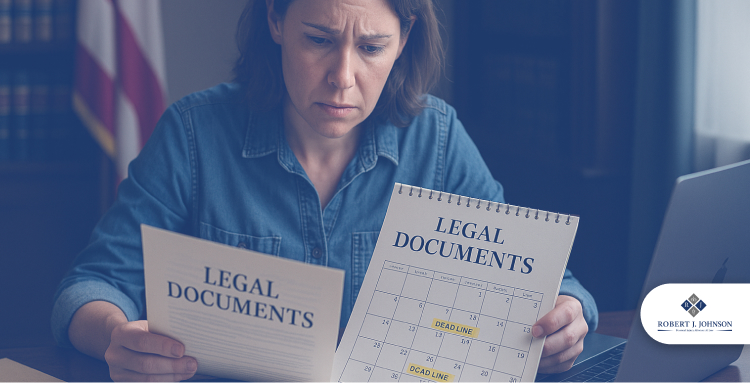
Florida has quite a strict timeline for government claims. If a public school is involved, parents must file a written notice of claim within three years of the injury. This must be submitted to both the school district and the Florida Department of Financial Services. The law bars filing a lawsuit until the agency has either denied the claim or six months have passed since the notice was submitted.
For general negligence claims, Florida’s statute of limitations is now two years, shortened from four years by legislation passed in 2023. This change applies to injuries occurring on or after March 24, 2023.
To meet these requirements, parents should know the essentials:
Notice of Claim Requirements: Must include the child’s name, date and location of the incident, description of injuries, and compensation sought.
Where to Send: The notice must go to the school board and DFS, typically by certified mail or another trackable method.
Proof of Delivery: Always keep mailing receipts and confirmation, since failure to prove delivery can jeopardize the claim.
Exceptions for Minors: Some deadlines are paused for children, but sovereign immunity rules may still limit recovery, so parents should not rely on extra time.
Special Situations: Different deadlines may apply if the injury involves medical malpractice in a school clinic or with a school nurse.
Legal Support: An attorney can ensure the notice is complete and compliant, since incomplete filings often cause delays or dismissals.
For example, if a child breaks a leg after falling from unsafe playground equipment, parents would generally follow the three-year notice rule for public schools. However, if a school nurse failed to recognize a serious concussion, the case may fall under medical malpractice rules, which carry different deadlines and requirements.
Relevant Blogs That’ll Help You Along The Way:
Let Robert Jhonson Take It From Here
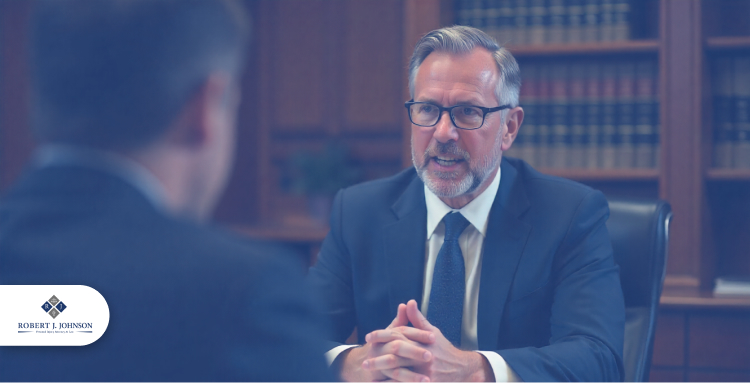
We understand, when it comes to child injury, parents want safety and security at first; Robert Jhonson brings calm, clarity, and results. With extensive experience in Florida personal injury law and a strong focus on school liability cases, Robert has guided families through the complex steps involved in pursuing rightful compensation.
His approach starts with a thorough case evaluation, listening to the family’s concerns and gathering all key details. Our team then manages communication with the school district or insurers, making sure deadlines are met. If litigation is needed, his courtroom experience and knowledge of Florida tort laws provide families with a strong advocate.
If your child has been injured at school and you’re unsure where to begin, call (813) 540-3225 to schedule a free consultation. Understand your options to get the support you need.
